Monday 9 June UNMISS opened a new civilian protection site in Malakal. African leaders urged South Sudanese politicians to find peaceful solution. The three-day multi-stakeholders symposium in Addis was concluded. Tuesday 10 June The International Organisation for Migration warned that 2 million people will be displaced in South Sudan by the end of 2014. South… Read more »
Ukraine and the Role of the Security Forces in Popular Uprisings

Photo: Wikipedia
The recent uprising in Ukraine echoes what happened in the earlier Orange Revolution. Much can be learned by comparing these events and looking at similar uprisings in other countries. Read More
Peace on Earth? The Future of Internal Armed Conflict
 The last 20 years have seen a gradual decline in the number and severity of internal armed conflicts worldwide. This trend is partly due to widespread improvements in factors such as education levels, economic diversification, and demographic characteristics. These factors are projected to continue to improve for the remainder of this century. As a consequence, the world should continue to grow ever more peaceful.Read More
The last 20 years have seen a gradual decline in the number and severity of internal armed conflicts worldwide. This trend is partly due to widespread improvements in factors such as education levels, economic diversification, and demographic characteristics. These factors are projected to continue to improve for the remainder of this century. As a consequence, the world should continue to grow ever more peaceful.Read More
The British are Impatient to End Sexual Violence in Conflict
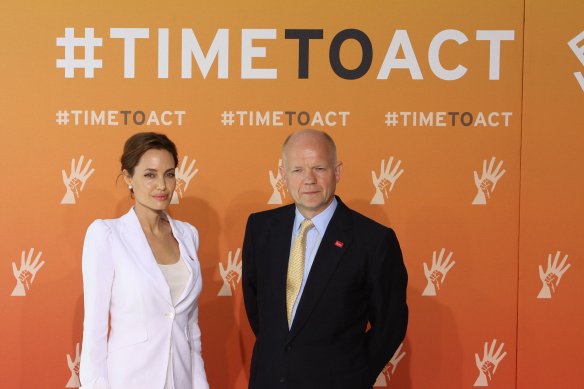
Angelina Jolie and Foreign Secretary William Hague at the Global Summit to End Sexual Violence in Conflict. CC BY 2.0 Foreign and Commonwealth Office
A Global Summit to End Sexual Violence in Conflict is taking place in London on 10-13 June. World leaders are meeting to discuss ways of combating the use of sexual violence in conflict and of improving efforts to bring perpetrators to justice. This is a historic event. Never before have so many powerful people with decision-making authority been gathered to discuss this topic. Let us hope that this initiative brings results for those affected.Read More
The Unintended Consequences of Education among Pakistani Migrants to the UK
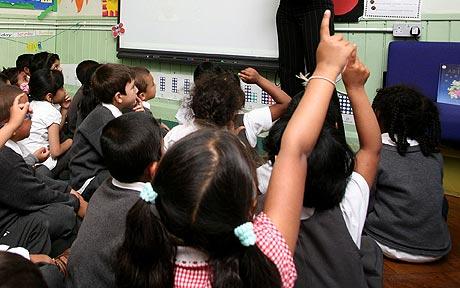 The field of education has been at the forefront of social policy concerns for at least three decades in the UK. The debate around integration and education revolves mainly around two aspects: the ability of migrants to integrate, depending on their level of education; and the challenges brought by migrants to the British education system. Based on PREMIG data from among Pakistani migrants and descendants in the UK it is clear that education is indeed a major field in which issues of integration are explored, negotiated and can either get stuck or resolved. Read More
The field of education has been at the forefront of social policy concerns for at least three decades in the UK. The debate around integration and education revolves mainly around two aspects: the ability of migrants to integrate, depending on their level of education; and the challenges brought by migrants to the British education system. Based on PREMIG data from among Pakistani migrants and descendants in the UK it is clear that education is indeed a major field in which issues of integration are explored, negotiated and can either get stuck or resolved. Read More
Four Things Everyone should know about Wartime Sexual Violence

Angelina Jolie at the launch of the UK initiative on preventing sexual violence in conflict. Photo from Foreign and Commonwealth Office, via Wikipedia
Later this week, ministers from more than 140 countries, along with an estimated 1,500 invited delegates, are gathering in London for the Global Summit to End Sexual Violence in Conflict. The summit — the largest gathering of its type — is co-chaired by British Foreign Secretary William Hague and the actress Angelina Jolie, in her capacity as the special envoy for the U.N. High Commissioner for Refugees.
Read more in the blogpost at the Monkey Cage – by Dara Kay Cohen, Ragnhild Nordås (PRIO) and Elisabeth Wood, posted 9 June 2014.
Renewed Violence in Pakistan
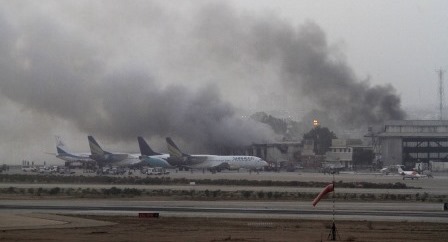 Last night, the Pakistani Taliban (otherwise known as Tehrik-i-Taliban Pakistan, or TTP) allegedly staged a bloody attack on Jinnah International Airport in Karachi. Shahidullah Shahid, TTP’s spokesman, told Agence France-Press that the group launched the attack in revenge for the Pakistani government’s November 2013 killing of TTP leader Hakimullah Mehsud. He also claimed the group intended to send a “message” to the Pakistani government that the TTP would continue to “react” to government killings of civilians in Pakistani villages. The New York Times notes that in spite of Shahid’s promise that such attacks will continue, he also insists that the TTP is still committed to pursuing peace talks with the Pakistani government.
Last night, the Pakistani Taliban (otherwise known as Tehrik-i-Taliban Pakistan, or TTP) allegedly staged a bloody attack on Jinnah International Airport in Karachi. Shahidullah Shahid, TTP’s spokesman, told Agence France-Press that the group launched the attack in revenge for the Pakistani government’s November 2013 killing of TTP leader Hakimullah Mehsud. He also claimed the group intended to send a “message” to the Pakistani government that the TTP would continue to “react” to government killings of civilians in Pakistani villages. The New York Times notes that in spite of Shahid’s promise that such attacks will continue, he also insists that the TTP is still committed to pursuing peace talks with the Pakistani government.
Read more in Erica Chenoweth’s blog post at Political Violence @ a Glance, posted 9 June 2014
The Taliban are an Organized Fighting Force
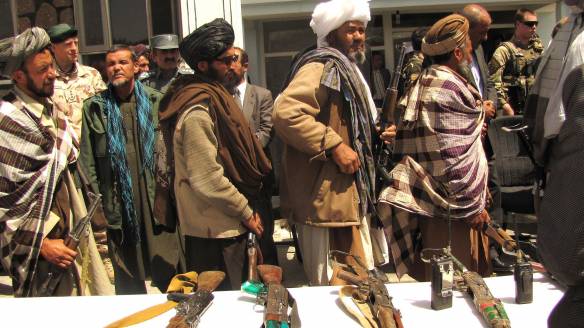
Former Taliban fighters line up to handover their Rifles to the Government of the Islamic Republic of Afghanistan during a reintegration ceremony at the provincial governor’s compound. Wikimedia Commons
A new UN report blames the Taliban for a sharp rise in violence against civilians. The Taliban are an organized fighting force. They combine a relatively strong central command with a networked structure in which each of the various factions operate with considerable independence. Establishing control over certain territories has been a main rationale for the Taliban. While their military tactics have changed a lot, their ultimate objectives have not. For the Taliban, military capacity and the ability to control territory are key to their success.
This Week in South Sudan – Week 23
Monday 2 June New report stated that there have been more than 1106 cholera incidents in South Sudan since 15 May. South Sudan security was accused of arresting relatives of politicians supporting Riek Machar. Salva Kiir said in a media address that the citizens of South Sudan should decide whether the country should have a… Read more »
Turkey’s Ambitions in Africa
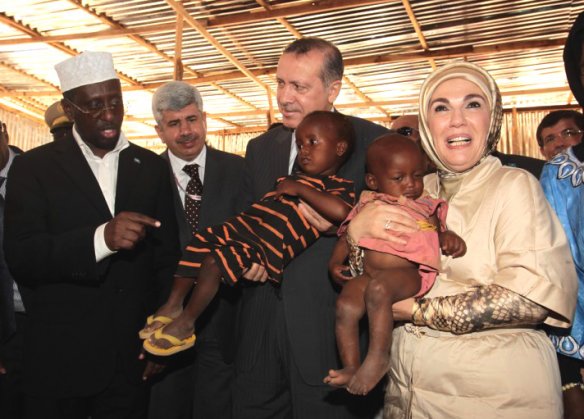
Turkish PM visits Somali camp. Photo: Worldbulletin.net
In August 2011 Turkish Prime Minister Erdoğan took his family, his foreign minister, and an entourage of cabinet members to visit Somalia as part of a humanitarian mission to highlight the plight of 12 million Somali victims of drought. The visit was symbolically important, as Erdoğan travelled to Mogadishu, the first visit to the Somali capital by a leader from outside Africa in 20 years. Also symbolic was the timing, coming as it did during the holy month of Ramadan in which Turkey alone raised 201 million USD in humanitarian relief. The magnitude of the Somali tragedy – with the UN reporting that 3.2 million people at risk – deserves significant international attention, but even so, one can wonder what is behind the Turkish fervor to engage with Africa?Read More